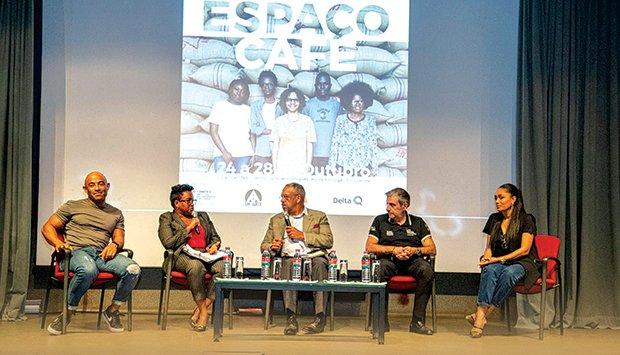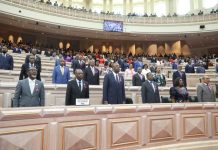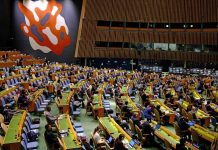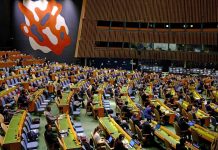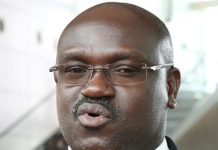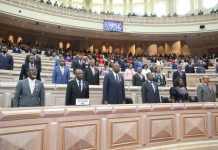Africa-Press – Angola. Angonabeiro is focused on contributing to increase production and supporting Angola in the process of recovering its position as the world leader in the production of high quality coffee, according to the director-general.
Nuno Moinhos explained that they have always been committed to the development of coffee in Angola and to ensuring that consumers understand that coffee is good for health.
“With this initiative, we intend to reinforce these benefits, not only for health, but also for the Angolan economy, as well as publicizing the history of coffee, and extolling the importance of culture and art”, he said.
Angonabeiro and Camões – Centro Cultural Português (Camões-CCP), with the collaboration of AM-ARTE, are promoting, until tomorrow, the “Espaço Café”, a set of initiatives around the history and benefits of coffee, including exhibitions and debates . The opening of “Espaço Café” had a roundtable on ‘Myths and Benefits of Coffee for Health’, moderated by economist and journalist Carlos Rosado Carvalho. The panel featured interventions by Luzia Guimba Rodrigues, a specialist in Internal Medicine at Hospital do Prenda, fitness instructor and TV presenter Bruno Samora, image and communication consultant Mell Chaves, who is also an influencer Delta Q and Café Ginga, as well as Pedro Romão, barista Academy by Delta Cafés.
All of them, each in their own area of activity, were unanimous in ensuring that coffee is healthy and that there is a lot of myth around it.
At the round table, under the theme ‘Coffee in the Angolan Economy’, Nuno Moinhos, director general of Angonabeiro, Lara Proença, from the International Cooperation department of the Ministry of Foreign Affairs; Louis-Antoine Souchet, director of the French Development Agency, and Vasco António, director general of the National Coffee Institute (INCA) also indicated the importance of coffee as a commodity and its strategic position in economies with strong agricultural potential.
According to INCA data, for example, coffee is responsible in Angola for more than 200 thousand jobs.
According to the director-general of INCA, Vasco Gonçalves, in 2022 the country produced around 5,300 tons of coffee, which resulted in the collection of around five billion kwanzas, up 5.0 percent from the previous year. past.
Coffee Promotion
As for the “History of Coffee” made in the exhibition that Angonabeiro brought to Luanda, with the support of the Coffee Science Center, belonging to the Nabeiro Group, in Campo Maior – Portugal, these are multidisciplinary sessions, integrated by different contents: Kaldi legend video projection; wall with map of the largest coffee producers and main species; coffee history; connection of the Nabeiro Group to Angola; description of the process (cherry to cup); making off the painting of five artists’ coffee bags; Arabica/Robusta plant; benefits of coffee (‘Da Vinci’ diagram showing the benefits of coffee).
According to the cultural advisor of Camões – Centro Cultural Português, Sónia Fonseca, “Espaço Café is a multidimensional project that, in addition to exploring coffee in its economic, health and lifestyle aspects, can also make a connection to the artistic and cultural world” “It’s a ‘flavored’ cultural proposal, and we’d like everyone to try it,” he said.
Espaço Café marks the end of the Angonabeiro coffee month, in an extension of the International Coffee Day, celebrated annually on October 1st.
For More News And Analysis About Angola Follow Africa-Press

